

Tao Te Ching
Search Sages
Enter all or part of an sage's name or biography in the fields below, then press tab or enter to filter the list of Authors. Click the headings Name or Biography to sort by that column. Diacritics are ignored when searching.
Click on the author's name to go to their page.
| Author Name | Biography |
|---|---|
| Robert Hutchins | 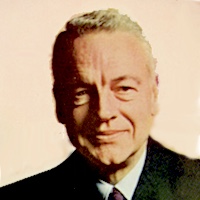 Robert Hutchins Robert Hutchins An educational philosopher whose time has arrived; Robert Maynard Hutchins was University of Chicago president, Yale Law School dean, Editor In Chief of the Great Books of the Western World, and a leading proponent of secular perennialism—nonspecialized and nonvocational |
| Rinzai Gigen |  Rinzai Gigen Rinzai GigenStudent of Huangbo Xiyun, iconoclastic founder of a major Chán Buddhist school and one of the Five Houses of Zen, Rinzai; Gigen or Linji fiercely challenged students who accepted the superficial, conceptual meaning of buddhist teachings rather than penetrating the true meaning deeper than the words to find genuine wisdom and understanding. A book of his sayings recorded by one of his students, The Record of Rinzai (Zen Teachings of Rinzai), became one of the main texts for the Rinzai school as well as a big influence on buddhism and the evolution of consciousness in general. Known for his uncompromising approach to teaching that included yelling at and hitting his students, he directly continued the Buddha’s flower-sermon styleof non-conceptual teaching. |
| Richard Wilhelm | 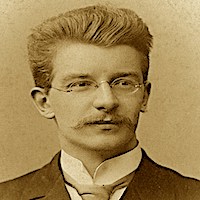 Richard Wilhelm Richard WilhelmTranslator bridging East and West Theologian, missionary, early sinologist, and personal friend of Carl Jung; Wilhelm gave us two culturally transformative translations: the I Ching and The Secret of the Golden Flower. He moved to China as a young man and lived there for 25 years. During that time, he met a sage driven out of his hermitage by the revolution—Lau Nai Suan who introduced him to the philosophy of Chinese yoga and the I Ching's psychology. This meeting and his studies produced a bridge between east and west but also a deep conflict within Wilhelm between consciousness and unconsciousness, between his Christianity and eastern philosophy. |
| Richard Nixon | 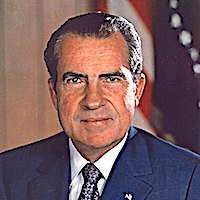 Richard Nixon Richard NixonCorrupt and immoral yet brilliant and accomplished politician Thoroughly corrupt, immoral, and self-serving politician; yet, brilliant and accomplished, Nixon created the EPA, ended the draft and the Viet Nam war, opened diplomatic relations with China, began the Endangered Species Act and the War on Cancer, restarted the Middle East peace process, and initiated the Anti-Ballistic Missile Treaty with the Soviet Union—an impressive list but short compared to his list of scandals, lies, and corruption. |
| René Dubos | 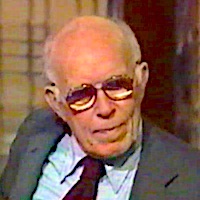 René Dubos René DubosInfluential scientific environmentalist Microbiologist, leading humanist and influential environmentalist; Dubos wrote 32 books including a Pulitzer Prize winner. Creator of the famous phrase, "Think Globally, Act Locally," he empowered and entrusted individuals, local, and small organizations making needed changes rather than relying only on large, impersonal, and out-of-touch institutions. He argued that only local, small-scale organizations can clearly see and respond to their "unique physical, climatic, and cultural contexts." He balanced this sentiment, however, with an emphasis on need for communication with a world order conscious of environmental priorities. While not ignoring our immense global challenges, he conveys an optimistic, positive, and realistic approach. |
| René Descartes | 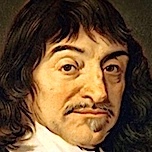 René Descartes René DescartesThough remaining a Catholic, solidifying the dualistic view in Western thought as well as “Cogito ergo sum” belief in a separate self; Descartes emphasized methodic doubt and the impossibility of externally based intellectual certainty undermining faith in belief and Church doctrine. This sparked a thought revolution that created the modern era. He developed analytic geometry (using x, y, and z for unknowns) and using superscripts for powers or exponents, discovered the law of reflection, and the basis for the development of calculus. Known as the “father of modern philosophy,” he changed the course of Western philosophy and his influence continues to this day. |
| Reinhold Niebuhr | 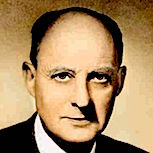 Reinhold Niebuhr Reinhold NiebuhrComposer of the Alcoholics Anonymous Serenity Prayer, author of a nonfiction book ranked in the top 20 of the twentieth century, "the most influential American theologian of the 20th century,” leading political and cultural commentator for over 30 years; Niebuhr challenged religious conservatives as narrow-minded, religious liberals as naive and taught a middle-way “Christian realism.” Barack Obama’s "favorite philosopher" and a deep influence on Thomas Edison, Jimmy Carter, Martin Luther King Jr., John McCain, and given the Presidential Medal of Freedom by Lyndon Johnson; one of his books was called, "the most important book ever written on U.S. foreign policy.” |
| Red Pine | 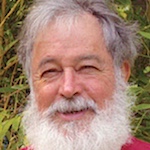 Red Pine Red PineExceptional translator, cultural diplomat Son of a bank robber turned politician who became the wealthy head of the California democratic party, friends with the Kennedys and nominated for president by Eleanor Roosevelt but who later lost everything; Red Pine at an early age saw through the materialism of western culture and left the US for 22 years to study, practice, and translate in the Far East. After studying with John Wu, John Blofeld, and Chiang Kai-Shek’s personal master, Wu Ming, he traveled through Mainland China documenting his adventures with details about Chinese culture and history on over 1100 radio programs for Chinese audiences. His translations sink through the words, find the essence, and bubble the meaning up into beautiful and vivid English. |
| Reb Zalman |  Reb Zalman Reb ZalmanMajor founder and proponent of the Jewish Renewal movement and writer of the first English book on Jewish meditation; Rabbi Zalman when young was interned in Vichy French detention camps and escaped the Nazi advance in Europe by coming to America. In 1962 after experimenting with LSD, he left his more conservative tradition and became a voice in the counter-culture movement championing feminism, the Gaia hypothesis, and a kind of mystical pantheism. Recognized as a sheikh (wise elder) by a Sufi order, given an honorary doctorate by a Unitarian school of ministry, and World Wisdom Chair at the Buddhist Naropa University; he was an important voice in deep ecumenical dialogues |
| Razia Sultan | 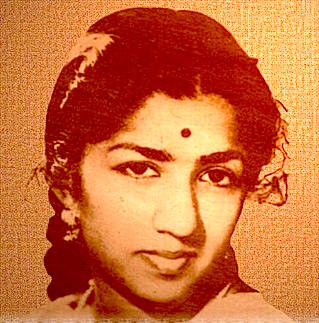 Razia Sultan Razia SultanDaughter of a Turkish slave who rose to become a sultan and the only woman to rule the Delhi Sultanate before or since; Razia devoted her rule to helping her people and established many libraries, research centers, and schools that went far beyond purely Islamic studies and included ancient philosophies, science, astronomy, and literature. Abandoning the veil, she was just, tolerant, and on religious matters emphasized the sense over the words, the spirit as more important than dogmatic belief. Her romantic love affair with Altunia is still famous and her inspiration continues in modern movies and TV shows. |
| Randall Jerrell | 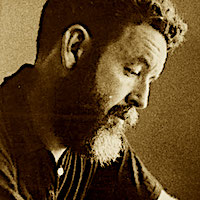 Randall Jerrell Randall Jerrell“The most heartbreaking poet of our time” |
| Ramsay, Kwok, Palmer | 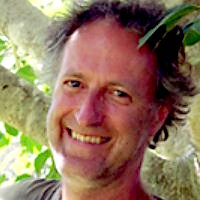 Ramsay, Kwok, Palmer Ramsay, Kwok, PalmerTranslators of Tao Te Ching |
| Ramana Maharshi | 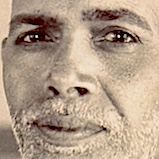 Ramana Maharshi Ramana MaharshiA modern advocate in our non-thought lineage, Ramana Maharshi taught extensively but like Mahākāśyapa insisted in silence as the purest teaching, self-enquiry as the main spiritual method, and never publicized himself as a guru. Worshipped by thousands, he never claimed to have disciples and treated everyone with equal respect, never accepting private gifts. Somerset Maugham used him as the model for the guru in his book, The Razor’s Edge. He was a symbol for India that engendered a respect for their own culture and traditions that inspired independence from Britain. |
| Ramakrishna | 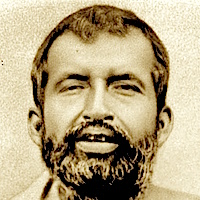 Ramakrishna RamakrishnaRamakrishna Paramahamsa (Bengali: রামকৃষ্ণ পরমহংস (1836 – 1886) |
| Ralph Waldo Emerson | 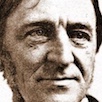 Ralph Waldo Emerson Ralph Waldo EmersonChampion of individualism Friend and mentor to Henry David Thoreau and godfather to William James, Emerson championed individualism as a counterbalance to society’s conformist pressures. He wrote what Oliver Wendell Holmes considered America's “Intellectual Declaration of Independence” and he summarized his philosophy as “the infinitude of the private man.” The most influential writer of 19th-century America, he was called “the Concord Sage” and became the leading voice of intellectual culture in the United States influencing American religions to become more gnostic, less fundamentalist and conservative. |
| Ralph Alan Dale | 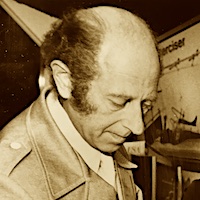 Ralph Alan Dale Ralph Alan DaleTranslator, author, visionary (1920-2006) |
| Rainer Maria Rilke |  Rainer Maria Rilke Rainer Maria RilkeProfound singer of universal music One of the most popular and best-selling poets of all time, a Catholic who believed that Jesus had a baby with Mary Magdalene, secretary to famous sculptor Rodin, lover and confidant of married Sigmund Freud student, psychoanalyst, and Nietzsche’s love focus, Lou Andreas-Salomé; Rilke’s mystical writings are still frequently quoted on TV, in movies, music, and self-help books. Taking art as religion and the only source of human redemption, he reconciled dichotomies like life and death, suffering and joy, beauty and destruction unifying opposites and finding deep meaning is all experience. He described god as nature, life force, and an evolving consciousness only slowly coming into existence. Hermann Hesse wrote that “through him resounds the music of the universe.” |
| Rabindranath Tagore | 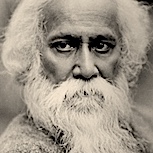 Rabindranath Tagore Rabindranath TagoreAuthor, painter, “the greatest poet India has produced,” and song writer of over 2000 songs including the national anthems for India, Bangladesh, and Sri Lanka; Tagore was the first non-European to win the Nobel Prize in Literature. A universal internationalist, he was strongly against nationalism and introduced Indian culture to the West as well as Western culture to India. A close friend of Gandhi, he renounced his British knighthood and gave voice to the deeper wisdom within all strata of society: rich and poor, powerful and humble. |
| Rabia Basri | 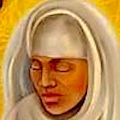 Rabia Basri Rabia BasriMuslim mystic, “queen of saintly women,” and most important early Sufi poet; Rabia Basri rose from the poverty and slavery of her youth to become the most famous and influential Sufi woman of Islamic history known as “the queen of saintly women.” She had many disciples and became an important influence on the leaders of her time as well as an early voice against spiritual materialism and Islamic patriarchy. She taught a doctrin of Divine Love known as Ishq-e-Haqeeqi that is still practiced today and emphasized spiritual practice without desire for reward or fear of punishment. |
| Rabbinic Sages | 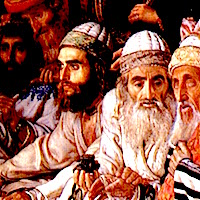 Rabbinic Sages Rabbinic SagesRabbinic Sages (20 – 200 CE) |